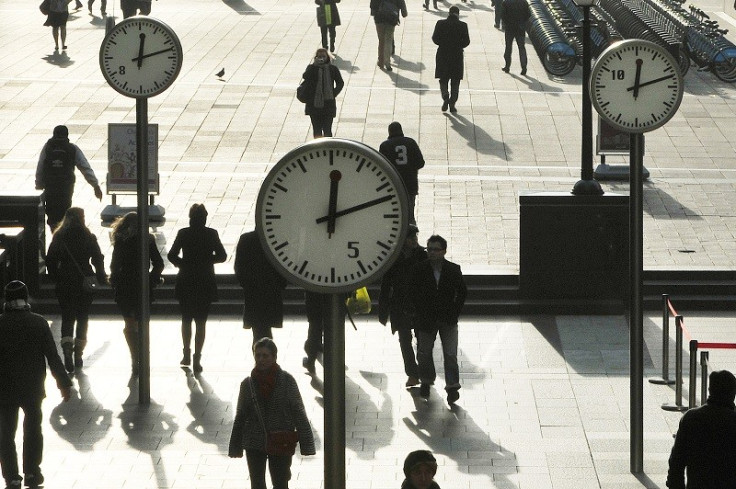Clocks Change 2014: When and Why do the Clocks Go Back?

Clocks in the UK will go back by one hour on Sunday 26 October, bringing an end to British Summer Time, or Daylight Saving Time.
The clocks change at 2am on the last sunday in October, meaning there is less daylight in the evenings and more in the mornings.
When the clocks go back, the UK is on Greenwich Mean Time (GMT).
The clocks also go forward by one hour at 1am on the last Sunday in March.
Greenwich Mean Time originally referred to the mean solar time at the Royal Observatory in Greenwich, London, which later became adopted as a global time standard.
What are the benefits of changing the clocks?
The debate about how we should set our clocks has been going on since standardised time was introduced with the expansion of the railways in the 1840s.
The New Zealander and astronomer George Vernon Hudson, an insect specialist, first proposed the modern idea of daylight saving in 1895.
During his leisure time he collected insects, so favoured daylight hours when he could do so. He presented the idea of a two-hour daylight saving shift and presented it in a paper to the Wellington Philosophical Society.
Germany and Austria-Hungary implementated the change, starting on 30 April 1916.
Supporters of moving the cloks backwards and forwards argue that it saves energy, promotes outdoor leisure activity in the evening in summer, and is therefore good for physical and psychological health, reduces crime, and is good for business.
Royal Society for the Prevention of Accidents has argued that lighter evenings would reduce the number of accidents.
In 1968 and 1971, BST was employed all year round as an experiment. In October 1970, an analysis of road accident data published by HMSO (Her Majesty's Stationery Office) suggested there had been a substantial fall in the number of casualties in the evening.
However, the period in which the research was taken coincided with the introduction of Drink-driving legislation and the estimates were modified in 1989.
Opponents argue that the change is economically and socially disruptive.
© Copyright IBTimes 2025. All rights reserved.




















